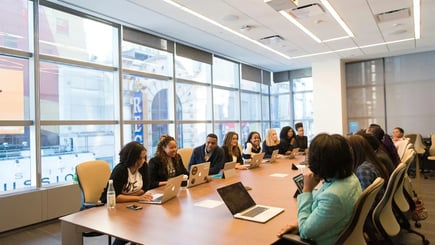Relevant Contents
Need Tailored Business Continuity Insights?
Contact Us Now for Personalized Guidance!
The primary function of business continuity (BC) and operational resilience (OR) is to help organizations protect their operations, but it can also make a meaningful contribution toward safeguarding a brand. Today in the blog, we look at what practitioners should know about the links between resilience and reputation.
In Business Continuity (and Operational Resilience), Functionality Comes First
The leading business continuity standards such as ISO 22301 and the FFIEC guidelines all recommend that organizations take potential damage to their reputations into account when developing their BC programs. But in practice, most organizations put a higher priority on operational factors.
At MHA Consulting, when we do business impact analyses (BIAs) with clients, most prioritize impact categories such as customer and operational impact; loss of revenue; increase in operating expenses; and penalties, fines, and sanctions well ahead of the category of impact to brand and reputation.
Taken on its own, impact to brand and reputation typically comes comparatively low on most companies’ list of concerns.
Far from being misguided, this is exactly how organizations should proceed.
By Protecting Operations, Companies Also Protect Their Brands
BC/OR is first and foremost about protecting functionality, whether that means making widgets, delivering services, caring for patients, or something else. When a disruption occurs, worrying about how the organization looks to outsiders can and should come far down its list of concerns.
Fortunately, in most cases, protecting functionality also safeguards reputation.
A company that can recover quickly from a disruption or keep its operations going under pressure will usually win—and deserve—the trust of its customers and the public. If the organization is really on top of things, few outsiders will even realize there was an issue.
By the same token, an organization that is brought to a standstill will likely suffer reputational damage as a result of its inability to deliver the products or services its customers expect.
Reputation is More Important for Some Companies Than Others
Not all brand damage is created equal.
Some organizations can shrug off damage to their brands—for example, those that operate with little competition or those that sell commodities, where price is the main factor in customer decision-making.
However, for companies offering specialized or well-known products or services in competitive markets, damage to their reputations can be costly and potentially ruinous.
Brand damage caused by an organization’s inability to deliver the goods as the result of an outage has a way of encouraging customers to turn elsewhere, assuming they have the option.
And these days, few people are satisfied by excuses such as, “We were hit by an Act of God, so what could we do?”
Mature people know that challenges are a fact of life, and they expect the organizations they depend on to also recognize this and to be prepared for it.
The Special Case of Crisis Communications
There is one exception to the idea that resilience professionals should worry about functionality and not concern themselves with how the company is perceived by outsiders.
The exception is crisis communications.
BC practitioners have a role to play here because crisis management is part of BC, and crisis communications is part of crisis management.
During an event, how the organization communicates with external stakeholders about the incident plays a large part in shaping public perception.
Gone are the days when an organization could get away with “going dark,” saying little or nothing during a crisis. Today, people expect a certain amount of transparency from the organizations they engage with.
When high-profile organizations hit rough spots, the stories will fly whether the organization participates in the conversation or not. In most cases, companies are much better off if they get out in front of the story, sharing factual updates about the situation and stating (and demonstrate) that they are taking appropriate action.
For BC/OR professionals, this underscores the need to support crisis communication planning: drafting and pre-approving response scripts, identifying designated spokespeople, and establishing policies about employee use of social media during an incident.
How BC Practitioners Can Leverage Brand Awareness
One way BC/OR practitioners can contribute to brand protection is by advocating for strong crisis communications planning.
Beyond that, resilience professionals should be mindful of the broader connections between operational resilience and brand reputation—and be ready to leverage that understanding when it’s effective to do so.
Some executives are more mindful of brand issues than others, and sensitivity to reputation tends to be great in consumer-facing or highly competitive industries. In speaking with a brand-sensitive executive, tying your continuity efforts to the protection of customer trust and market perception can help your message land more powerfully.
It can also be helpful to watch the news. When another organization suffers reputational fallout due to a poorly managed disruption, it often creates a moment of heightened awareness internally. These are prime opportunities for BC/OR professionals to frame resilience as a way to avoid similar outcomes—and to gain support for building stronger, more visible continuity programs.
Resilience Is a Key Component of a Powerful Brand
A strong BC/OR program is primarily about keeping the organization functional in the face of disruption. But by doing that well, it also plays a quiet but powerful role in protecting the brand.
From effective recovery to smart crisis communications, resilience helps organizations earn and keep the trust of the people who matter most. For practitioners, this connection can be a valuable lever in building support and driving meaningful change.
Further Reading

Richard Long
Richard Long is one of MHA’s practice team leaders for Technology and Disaster Recovery related engagements. He has been responsible for the successful execution of MHA business continuity and disaster recovery engagements in industries such as Energy & Utilities, Government Services, Healthcare, Insurance, Risk Management, Travel & Entertainment, Consumer Products, and Education. Prior to joining MHA, Richard held Senior IT Director positions at PetSmart (NASDAQ: PETM) and Avnet, Inc. (NYSE: AVT) and has been a senior leader across all disciplines of IT. He has successfully led international and domestic disaster recovery, technology assessment, crisis management and risk mitigation engagements.



